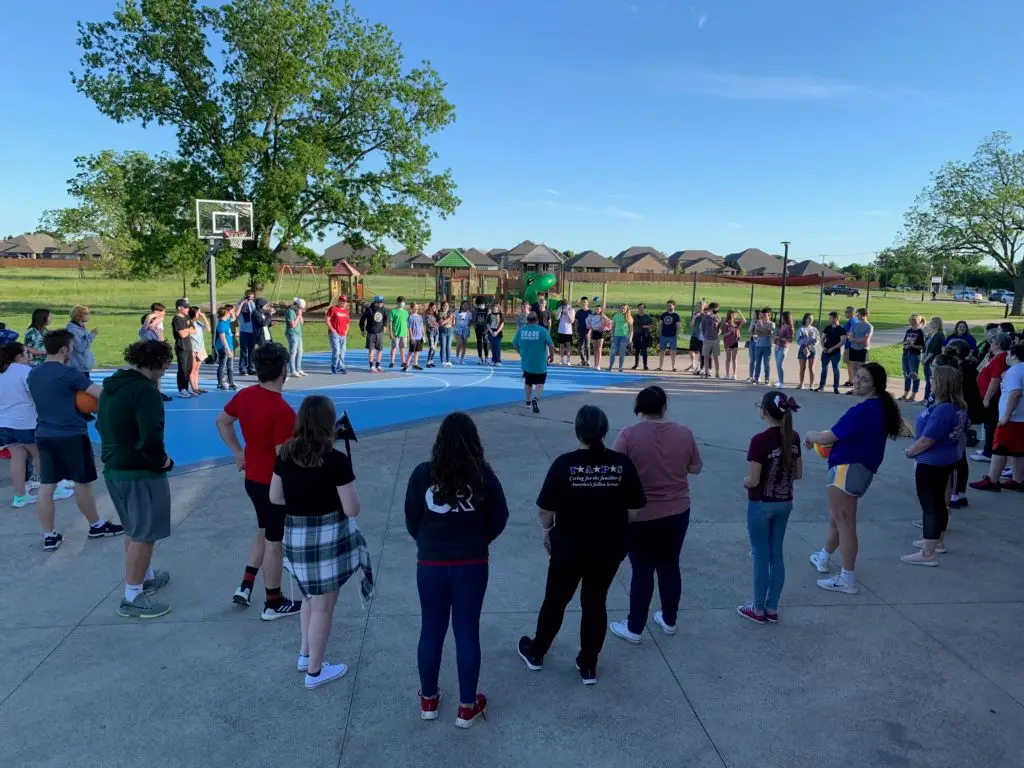ROWLETT, Texas (BP) – Crossroads Church doesn’t plan a youth Sunday anymore. To be honest, the concept seemed pointless.
“A lot of what we do came out of a conversation we had years ago,” said Wes Barnett, family and student ministry pastor. “Our leaders were planning a Youth Sunday when we decided something. Why can’t every week be Youth Sunday?”
So, instead of the periodic Sabbath where teenagers become involved for one morning in a church’s weekly gathering, Crossroads made them consistent members of the greeting team, kids ministry and audio/visual crew, for starters. That, plus an emphasis on more adult volunteers, has factored heavily in the group’s growing from one student when Barnett joined the staff five years ago to 75 today.
“They’re not the future of our church, they are the church,” Barnett said. What’s more, he added, the time serving places students alongside adults as co-laborers. “We want them with someone who has been serving 20 or 30 years. They build relationships with people and that brings them further along in their faith.”
Warren Gasaway, Church Health Assistant Team leader and Student Ministry specialist for the Arkansas Baptist State Convention, said that mentoring relationships among adults and students benefit both sides.
“Intergenerational discipleship is making a comeback,” he said. “Many student leaders are trying to reconnect student ministry back to the body of the church. In research we see from Barna, Lifeway and others, we learn that this generation has all the information at their fingertips, but lack the confidence to navigate it.
“The church has a real opportunity to reengage disciple-making,” said Gasaway, who believes each student should have five mentoring relationships in the church, not including the student minister.
To be clear, there isn’t anything wrong with specialized ministry in and of itself, said Shane Pruitt, Next Gen Evangelism director for the North American Mission Board. Teenagers need their own space for a time, and many adults aren’t going to want to crouch down for a round of gaga ball. But outside of that, it’s important to maximize the opportunities for students to be part of their church’s overall ministry alongside more seasoned believers.
“Some of my favorite churches to preach in are the ones where I see a 16-year-old and 66-year-old both greeting people at the door,” Pruitt said. “The more relationships [in the student ministry] a senior in high school has when he or she graduates, the more sticking power there will be to stay involved at the church.”
Sticking power is what Crossroads’ student ministry is after too. Its volunteers spend 45 minutes each week after Wednesday activities in a book study of “Sticky Faith” by Kara Powell and Chap Clark. Barnett estimates that his volunteers split evenly among parents and college students. Everyone goes through a background check and as far as the collegians go, each has expressed a calling for student ministry.
“I live by the philosophy that there are never enough volunteers,” Barnett said. “If students are going to come to our ministry, we need adults to reach them. As a student pastor, I can’t connect with every student individually. So, you have to equip your adult team to connect with students.”
Gasaway recalled his time as a teenager at First Baptist Church in Mansfield, Ark.
“We had no student pastor, but we did have a lot of adults who invested in us,” he said. “I can count a lot of students from then who are immersed in church now. I can go by name of all the adults who invested in our lives. That little church of 200 has ministers and missionaries all over the world. It’s a significant model we need to look at.”
Gasaway and Pruitt both said smaller- and medium-sized churches have an advantage in implementing mentorships. It’s more probable that adults and students have known each other a while. And with a more tight-knit congregation, the level of accountability also increases.
“I also believe that senior adults are one of our greatest untapped resources in student ministry,” Pruitt said. “Many are retired and have open schedules. They have a lot to offer the next generation.”
Those mentoring relationships become even more crucial in a time when extracurricular activities compete for students’ attention and time.
“We want them to stay as involved with the church as possible,” Barnett said. “I talk to them about priorities, but we also encourage our volunteers to be as present as possible. Get their game schedule and show up. If a student is unable to attend student ministry, I want to equip them to reach their teams, groups and circles for the Gospel.
“This world is going to fight for influence in their life. As the church, we want to show them the best influence.”
This was written by Scott Barkley and was originally published at baptistpress.com

